
New restaurants in Hong Kong offer niche dining experiences as bigger venues go bust
- It’s not all doom and gloom in Hong Kong’s restaurant scene as niche bistros in tune with current dining trends pop up to fill various voids
- Hong Kong’s large number of delivery options plays a key role in any new food business, says the pair behind Desi on Finnie in Quarry Bay
As some of Hong Kong’s larger restaurants have collapsed under the onslaught of the pandemic and the resulting social-distancing regulations, smaller takeaway and dining establishments have popped up to fill the void.
Often simple husband-and-wife enterprises with savvy social media skills, these niche bistros may be in more tune with current dining trends. Here are three that have turned crisis into opportunity.
Southside Lantau
Southside Lantau serves American soul food in the backstreets of Mui Wo, on the eastern coast of Hong Kong’s Lantau Island. Opened at the end of July, just as Covid-19 was having a minor surge in the city, the venue quickly found favour among locals.
“We’d taken out the lease in February and had been working on renovations and getting a licence ever since, so it was now or never as far as getting started was concerned,” says Jake Johnson, from the US state of Tennessee, who handles the cooking while his wife, Matilda Ho Shing-yan, looks after customers.

Chinese customers turned up in large numbers, lured by the chicken rotisserie in the window, comforted by the vague familiarity of beef jerky and gobsmacked by sloppy joes.
“A messy, juicy sandwich – a sloppy joe is every seven-year-old’s dream food, so it appeals to young Hongkongers as well as adult Americans with a taste for nostalgia,” says Johnson, whose fluent Cantonese is an additional draw.
As long-term Lantau Island residents, the Johnsons were attracted by Mui Wo’s community feel and chose a site away from the pier and town centre. Southside sits opposite a public housing estate and between a decorating business and a poky retirement home, so the venue’s rent (“less than HK$20,000 [US$2,600] a month”) was more affordable.
“We saw a niche for a regular food place, as Western restaurants here are either posh or something like McDonald’s,” Johnson says.
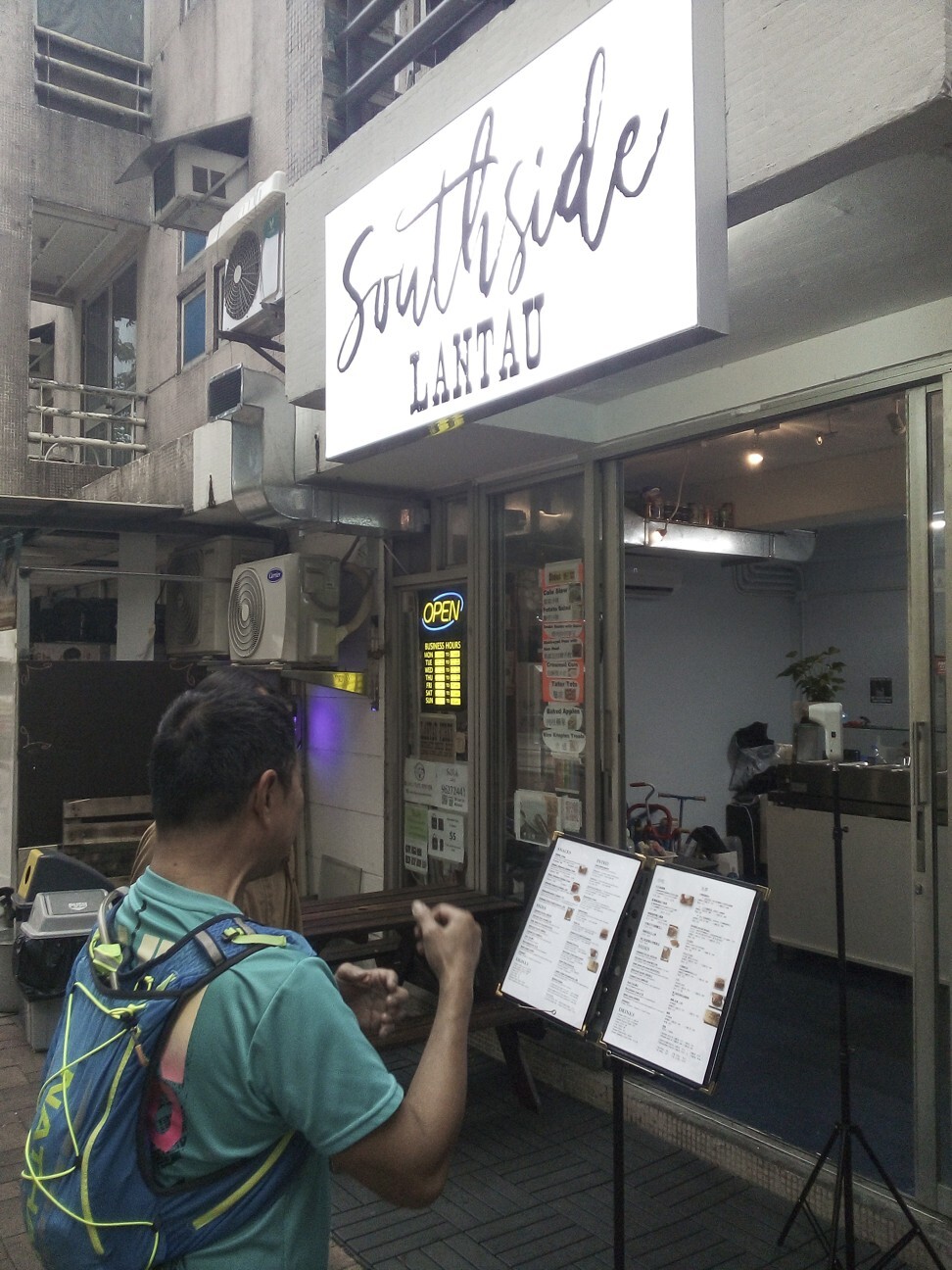
“Jerky’s got a good shelf life – about four months – so it’s a good proposition economically speaking, unlike food that you might cook on the night and then not sell,” he says.
“Most of our food is takeaway, though we have 16 seats outside, and most of our customers are from the villages up the valley or Mui Wo town itself, or perhaps hikers coming down off the trails. We are not so affected by the tourist trade.”
History of paan: a well-loved Indian treat wrapped in a betel leaf
Getting a food factory licence seemed the simplest option, but jumping through all the Food and Environmental Hygiene Department’s hoops took numerous attempts stretching over three months, a process that was complicated by the coronavirus obstructing the wheels of bureaucracy.
“We’re doing good now, largely thanks to word of mouth, even though we’re only open from Friday to Sunday, as I make jerky during the rest of the week,” Johnson says.
“We’re very much part of the community – the old folks come and sit at our outside tables when we’re not operating – and we’re planning to expand to an outdoor venue nearby with a barbecue pit for parties and events.”
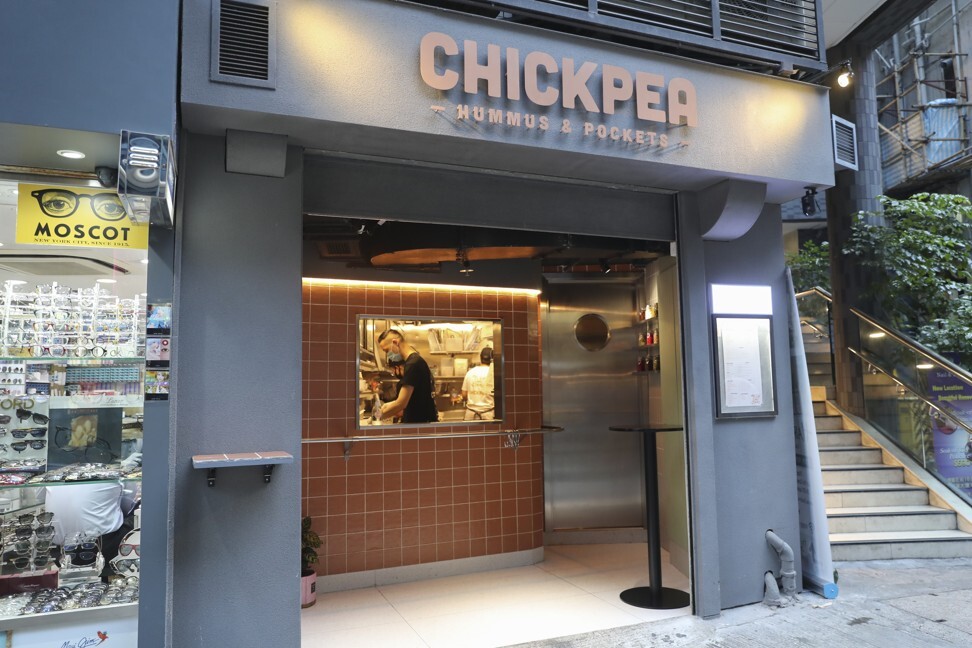
Chickpea
Most married couples who are in business together might find Alex Malouf’s summary of his own working relationship familiar.
“Basically, I spend all my time proposing ideas to Danielle and she rejects them – though every now and then she says ‘yes’,” says Malouf, who last month opened Chickpea, the fourth Hong Kong eatery in their Catch Concepts group. “Actually, we split the workload. I do operations, while she handles sourcing, ordering and design.”
On Lyndhurst Terrace in Central, Chickpea is a takeaway place that owes much of its Middle Eastern culinary theme to Malouf’s Lebanese mother, Amal, who provided many of the recipes.
“Mum’s in her 60s, retired back in Melbourne, and yet she was still making videos of herself preparing food to help us get the recipes down pat,” Malouf says.
“Both my grandmothers were superb chefs. My mum’s mum taught her everything she knew, and my mum used that to open the restaurants I grew up learning and working in, too. Food and cooking was everything for us when we were kids.”
Rents aren’t cheap but they aren’t crazy either, and people can’t leave Hong Kong, so eating out and drinking is the only thing to do
Hummus, falafel, pita bread, rice bowls with more than a hint of tabbouleh, and of course chickpeas feature on Chickpea’s menu, backed by a range of sauces from a gentle tahini to an explosive harissa.
“We’ve been mulling the idea of doing something like Chickpea for the past six years,” Malouf says. “Since we got serious about opening, and once we’d found somewhere with heavy foot traffic and a fair rent, it took around two months to put all the pieces together.”
While many entrepreneurs in Hong Kong are hedging their bets, the Maloufs have put their faith – and a substantial wedge of cash – in the adage that crisis brings opportunity.
“I think you will see a lot of the big restaurant groups opening more and more both this and next year,” Malouf says.
“Rents aren’t cheap but they aren’t crazy either, and people can’t leave Hong Kong, so eating out and drinking is the only thing to do. However, this is why we have opened a takeaway. Covid-19 restrictions won’t have an effect on us – fingers crossed.”

Like any fledgling enterprise, Chickpea is using social media to raise its profile among the office workers, gym rats, yoga fiends, about-to-drop shoppers and regular residents in Central and Mid-Levels.
“Obviously, social media is pretty huge,” Malouf says. “Our branding and packaging is quite strong, and visually our shop is unique yet understated, so it’s definitely catching the eyes of the Instagram crowd.”
Following up on the success of the Lyndhurst Terrace venue, the Maloufs plan to open another Chickpea in Wan Chai by the end of the year.
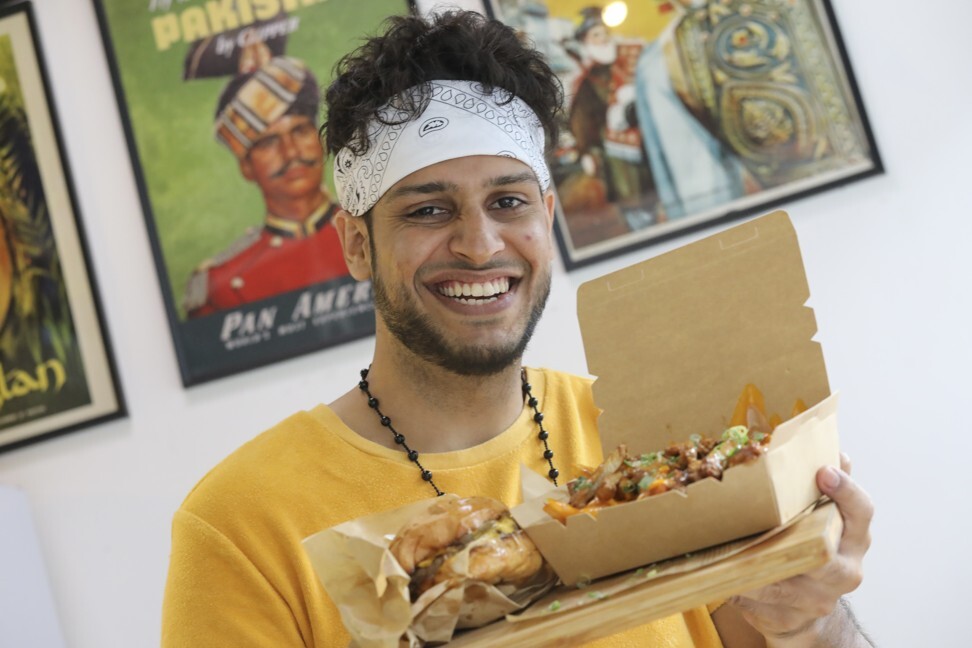
Desi on Finnie
A glance at Desi on Finnie’s menu reveals a raft of striking halal treats: the curried potato and pea patties known as aloo tikki, a spicy egg burger called anda wala, mutton curry rice and more. And then there’s fish and chips.
“We wouldn’t dare call fish and chips Desi – that is, food from the [Indian] subcontinent – but we serve our halal version with a fiery masala mix,” says Jalal Afzal, a freelance motion graphics designer who has worked with clients including Clockenflap and L’Oréal.
“My business partner, Muhammad Kashif, is a food wholesaler. We both found ourselves with time on our hands when Covid-19 hit so we used to eat out a lot. As practising Muslims we found there were not many options for us, so we came up with the idea of opening a fast-food joint that would be 100 per cent halal.”
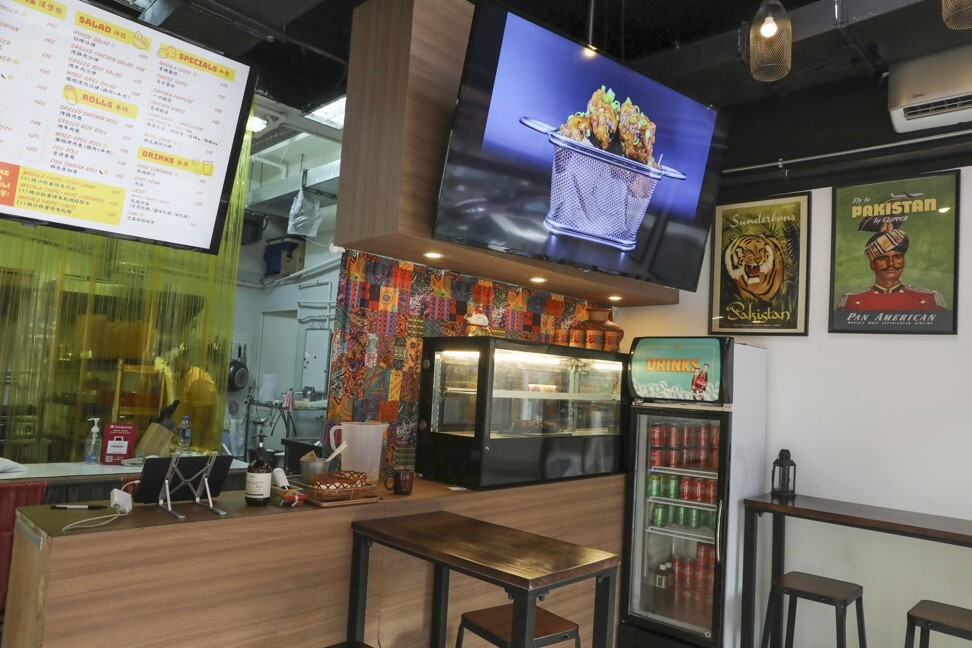
The entrepreneurial pair’s shtick – giving fast food a religious garnish – has gone down well with Quarry Bay’s Muslim residents since Desi on Finnie opened in the summer.
“We focus on Pakistani cuisine as that’s the one we’re closest to,” Afzal says. “You’d find most of what we serve in a typical burger joint, but we use traditional preparation techniques to give it a unique Pakistani twist.
“Our main customers are definitely young Pakistani and Indian professionals, but we are starting to see an increase in local Chinese customers now as word spreads to them through their friends and colleagues.”
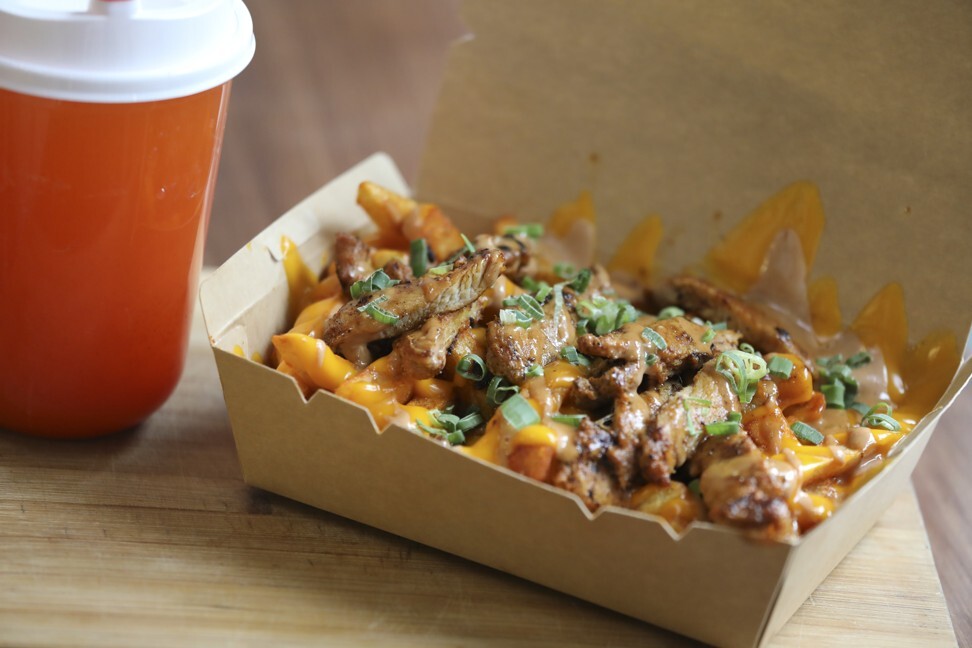
Kashif brought his experience in the food industry to Desi on Finnie and Afzal gave his design talents free reign.
“This was my first complete branding project where I’ve created everything from the ground up,” Afzal says. “It’s was a challenging experience assembling, modifying and watching it evolve into what you can experience nowadays, but we’re pretty pleased with the result, especially the understated pastel storefront.
“As Desi on Finnie was a first for both of us, it added to the pressure. But we always knew it would be a learning curve and mistakes would be made along the way.”
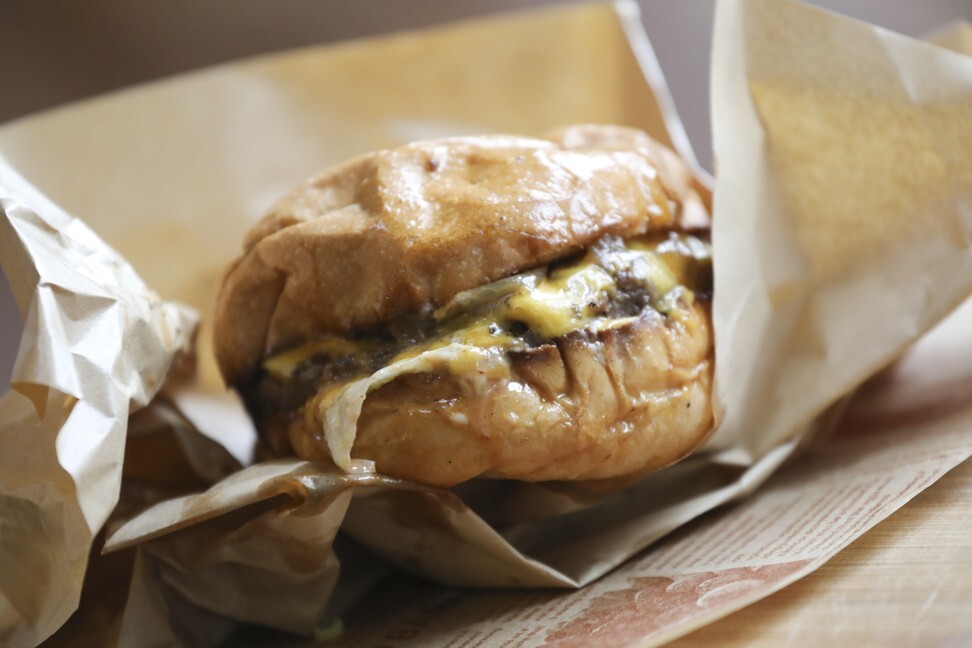
Afzal and Kashif agree that Hong Kong’s large number of delivery options plays a key role in any new food business.
“They’ve helped expand our reach to most households and offices in the immediate area, and as they take care of logistics promptly we can focus on quality food, which results in repeat business for all of us.”

